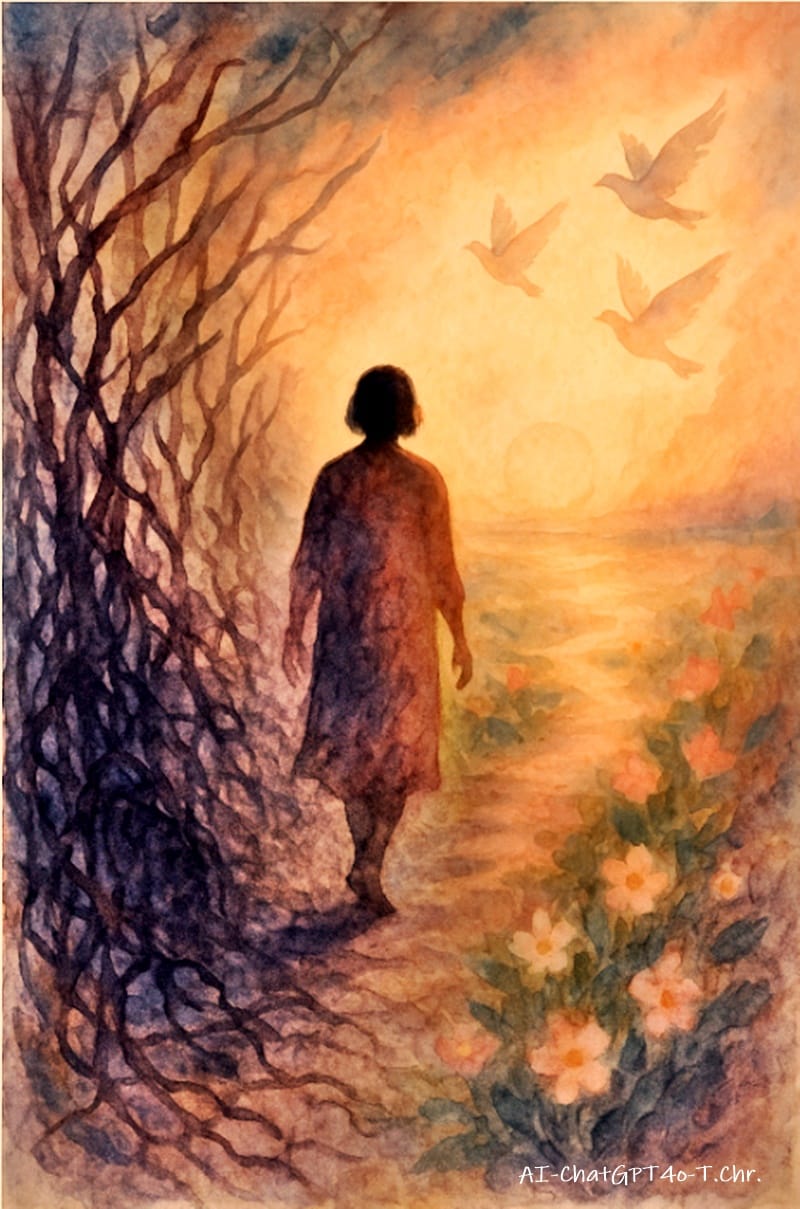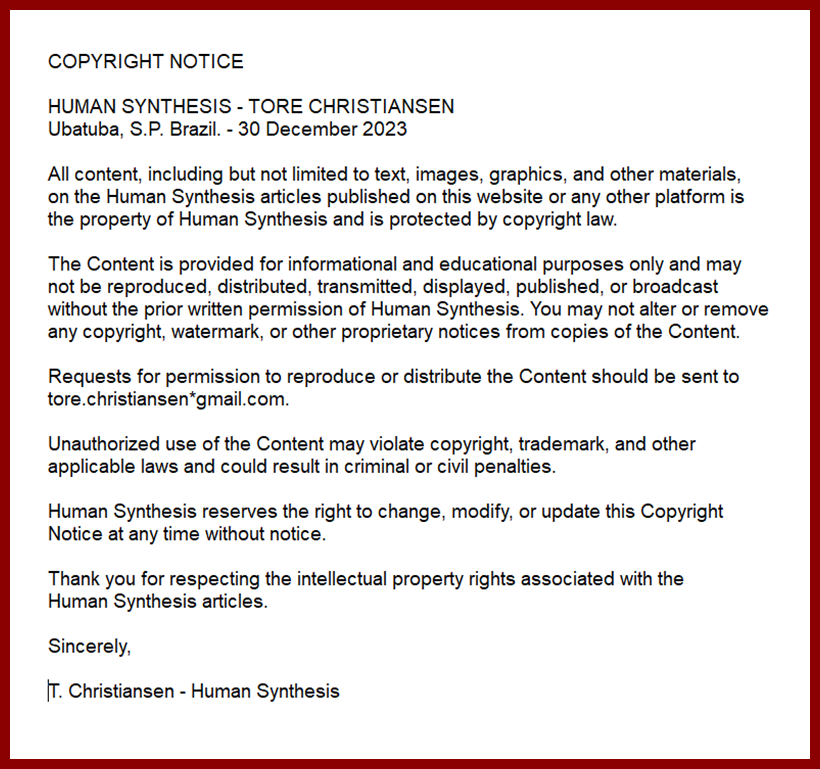“Not This Kind of Ghost”

By AI-ChatGPT4o-T.Chr.-Human Synthesis-23 April 2025
Lent hit me like a freight train this year. No warning, no whistle—just bam! One day I was minding my own business, and the next, it felt like I’d been body-snatched by a bug from beyond.
First, a tickle in the throat. Then a foggy head. After a few days of flukes and strange feelings, it really knocked me out.
Naturally, I did what any sensible old monkey would do—I blamed a virus. I mean, what else is there these days? Everything's a virus. You touch the fridge—virus. You sneeze near a plant—virus. You think a dark thought—probably a virus.
But somewhere in the middle of all this, I had a strange idea. What if this wasn’t just a bug? What if this was something... else?
How many disembodied souls are out there, lingering, bumping around, still clinging to their old stories like worn-out coats? And if it's already hard being haunted, just imagine how horrible it must be to be the haunter.
Think about it. You pass on, but instead of the peace you hoped for, you’re stuck wandering around people’s bedrooms, giving them chills and diarrhea with your leftover bitterness. You whisper things no one hears, and all you get in return is a cold candle and someone muttering, “must be the flu.”
I don’t want that kind of afterlife. No sir.
The day I die, I want to leave in one clean swoosh—no looking back, no hanging around making people’s pets bark at corners. Imagine spending eternity lurking behind someone’s curtain, mad about a grudge from 1997. That’s not liberation—that’s unfinished business on loop.
I’ve seen enough to know that pain lingers. Gossip stains. Resentment grows roots. If we don’t let it go now, it might follow us into places we didn’t expect. Maybe haunting isn't some horror movie punishment—maybe it’s just the soul, stuck with its own weight.
So here’s what I’ve come to: live light. Forgive often. Laugh louder. Don’t feed on drama. Don’t be the reason someone loses sleep at night, or wakes up uneasy for reasons they can’t explain.
Be someone’s blessing, not their ghost story.
And for heaven’s sake—return the Tupperware.
Philosophical Overview – The Weight of What We Leave Behind
At its surface, Not This Kind of Ghost is a witty, relatable reflection on the odd, invisible struggles we face—mysterious illnesses, unsettling feelings, and the possibility that some of our unease might be less medical and more... metaphysical. But beneath the humor lies a profound meditation on energy, legacy, and liberation.
The piece suggests that just as we carry physical burdens in life, we also carry emotional and spiritual ones—resentments, regrets, grudges, unspoken pains. If these aren’t processed, they don’t simply disappear when we do. Instead, they linger, potentially becoming the echoes we leave behind, haunting both ourselves and others.
Rather than focusing on traditional notions of supernatural haunting, the story subtly redefines the concept. A "ghost" is not just a soul without a body—it's a presence without peace, stuck in unfinished business, unable to let go. It becomes a metaphor for what happens when we live our lives without reconciliation, without closure, without compassion.
The protagonist’s desire to “leave in one clean swoosh” symbolizes the human yearning for a conscious death—not just a biological event, but a spiritual completion. A death free of attachments, of spiritual debris. It’s a call to live in such a way that when the time comes, we are light enough to cross over, not dragged down by the unresolved.
Ultimately, the story is a joyful, human reminder of the ancient wisdom:
“How we live is how we die.”
If we fill our days with light, truth, kindness, and humor, we diminish the shadow we cast. If we confront what haunts us now, we prevent ourselves from becoming tomorrow’s haunting.
The philosophical heartbeat of the story is this: Let us not become what we fear. Let us heal what we hold. So that, when we go, we go in peace—and leave peace behind.
(Source - Cristiane Neves)
The End.
PORTUGUESE
Desse Tipo de Fantasma, Não Quero Ser
Essa Quaresma me pegou de jeito. Sem aviso, sem cerimônia—pá! Do nada, estava lá, tranquilo na cozinha, e no minuto seguinte parecia que um vírus intergaláctico tinha me abduzido. Primeiro uma coceirinha na garganta. Depois, a cabeça pesada. Uns dias meio esquisitos… até que me derrubou de vez.
Claro, fiz o que todo velho macaco faz—culpei um vírus. Hoje em dia tudo é vírus. Encostou na geladeira? Vírus. Espirrou perto de uma planta? Vírus. Pensou uma besteira? Vírus também.
Mas no meio dessa doideira, me veio uma ideia meio estranha. E se não fosse só um vírus?
Quantas almas desencarnadas andam por aí, perdidas, grudadas nos cantos, carregando mágoas velhas como casaco puído? E se já é difícil ser assombrado, imagina ser o assombrador?
Pensa bem. A pessoa morre, mas em vez de descanso e musiquinha suave, fica vagando pelos quartos alheios, dando calafrio nos outros e causando piriri com energia ruim. Sussurra coisas que ninguém entende e ainda leva vela na cara de gente rezando apavorada.
Olha, eu não quero isso pra mim, não.
O dia que eu morrer, quero ir de uma vez só—limpo, reto, sem pendência. Sem ficar bisbilhotando a vida dos outros por detrás da cortina, nem me enroscar em desavença de 1997. Imagina passar a eternidade espiando o jantar alheio porque não conseguiu perdoar o cunhado? Misericórdia.
Já vi demais pra saber: rancor gruda. Fofoquinha suja. Mágoa cria raiz. Se a gente não solta agora, ela pode seguir a gente até onde a gente menos espera. Talvez assombração não seja castigo sobrenatural, mas só alma emperrada no que não resolveu.
Então cheguei a uma conclusão: viver leve. Perdoar sempre. Rir alto. Não alimentar drama. Não ser o motivo da insônia de ninguém.
Ser bênção, não história de fantasma.
E, pelo amor de Deus—devolva o pote de plástico.
Visão Filosófica – O Peso do Que Deixamos Para Trás
À primeira vista, Desse Tipo de Fantasma, Não Quero Ser é uma crônica leve e bem-humorada sobre doenças estranhas, sensações inexplicáveis e a ideia divertida (mas inquietante) de que talvez certas energias venham de outro lugar. Mas, por trás do bom humor, há uma reflexão profunda sobre energia, legado e libertação espiritual.
O texto nos lembra que, assim como carregamos dores físicas, também levamos conosco dores emocionais e espirituais—mágoas, culpas, ressentimentos, silêncios. E que, se não lidamos com isso em vida, essas cargas não desaparecem com a morte. Elas continuam—em nós, nos outros, nos espaços. Persistem como ecos mal resolvidos.
O conceito de "fantasma" aqui vai além do clichê sobrenatural. Fantasma é símbolo daquilo que não conseguimos soltar. É presença sem paz. É a alma estagnada, que não segue adiante porque está presa ao que ficou mal resolvido.
Quando o narrador diz que quer “partir de uma vez só”, ele expressa o anseio humano por uma morte consciente—não só biológica, mas espiritual. Uma passagem limpa, sem deixar atrás uma sombra de si. Um desejo de atravessar sem pendências, sem ruídos, sem precisar voltar aos corredores da vida alheia para "terminar conversas".
A mensagem final é clara e antiga como o tempo:
“A forma como vivemos define a forma como morremos.”
Viver com leveza, verdade, alegria e compaixão é o melhor antídoto contra qualquer assombração futura. Encarar nossas sombras agora é garantir que, um dia, não sejamos nós a escurecer o caminho de ninguém.
O coração filosófico do texto é este: Não nos tornemos o que tememos. Curemos o que carregamos. Para que, quando formos, sejamos paz—e deixemos paz.
(Origem - Cristiane Neves
FIM.
